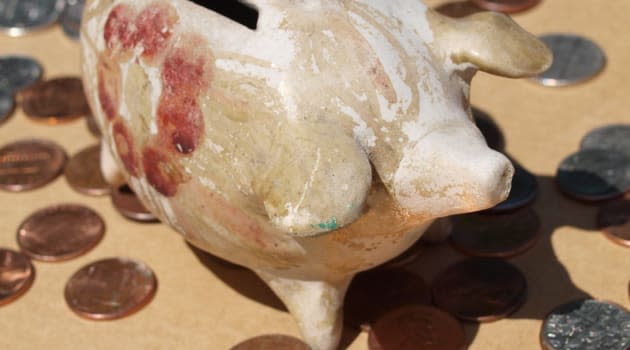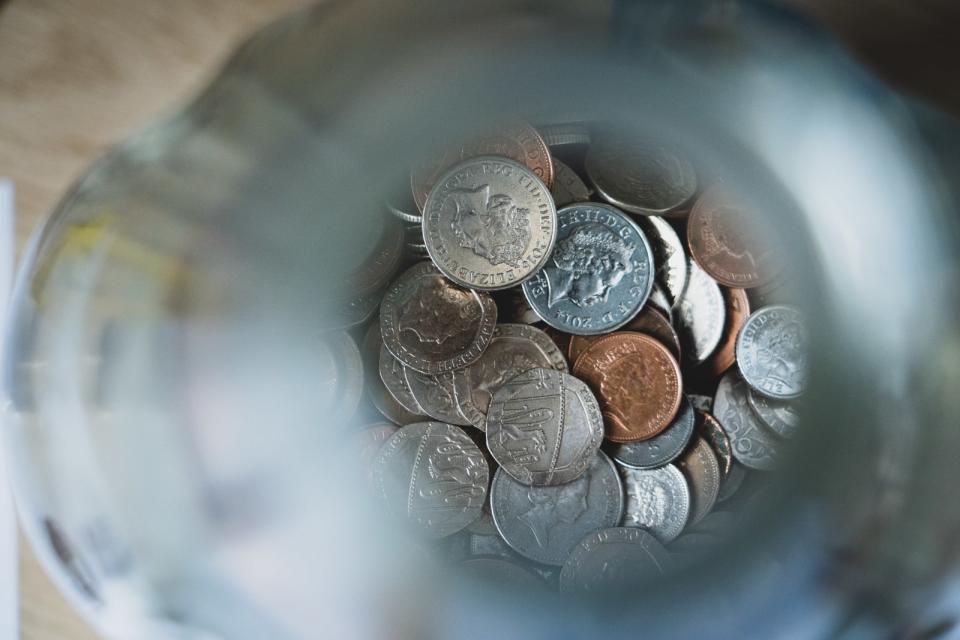The Best Low-Risk Places to Store Your Emergency Funds in Singapore

No matter how financially savvy you are, there are bound to be moments in life when you are faced with a shortage of funds or an unexpected crisis that puts you in a vulnerable position. Especially in Singapore where the standard of living is high and soaring inflation is seeing no sign of backing down, having emergency funds properly stashed away in a low-risk investment portfolio or savings accounts in Singapore could be an important lifeline to secure your future.
If you have not developed the habit of building up emergency funds, read on to find out more.

Source: Unsplash
How To Build Up An Emergency Fund
Most people will not prioritise the importance of building emergency funds. The process requires discipline and your best bet is to adopt a systematic approach to help you stash away money before you indulge in your next spending spree. A good rule of thumb is to set aside three to six months' worth of expenses as your emergency savings.
A simple way to get started is to have an automated savings account in Singapore whereby 10% to 20% of your monthly salary is deposited into it. This account is strictly for accumulating emergency funds and should be separated from your regular savings or expense-related banking accounts.
You may also consider opportunities that may help to grow your funds. For example, making small but regular contributions to building up a low-risk investments portfolio in Singapore may help you multiply your funds over time. These days there are many online trading platforms and robo advisors to start investing even if you have a small budget.
Related: 5 Reasons You Must Have an Emergency Fund
Potential Low-Risk, High-Security Places To Store Emergency Funds
If you are wondering where to keep your emergency funds, bear in mind that the place must be low-risk and easily accessible since you never know when you will need the funds. Below are four common options to consider.
High-Interest Savings Account
Storing your emergency funds in high-yield savings accounts is a great way to generate healthy doses of interest without incurring risks that are often linked to investment-related alternatives. These are several savings accounts in Singapore that are worth considering:
Account | Interest Rates | Suitable For |
|---|---|---|
Base rate from 0.05% per annum to a maximum of 7.65% per annum | Consistent savers who are willing to acquire several bank products to access high interest rates | |
Base rate from 0.05% per annum to a maximum of 0.2% per annum | Young adult looking for a starter account with minimum fees and requirements | |
Base rate from 0.01% per annum to a maximum of 2.8% per annum | High-income earner who wants a dedicated relationship manager to look after their account | |
CIMB FastSaver Savings Account | Base rate from 1.5% per annum to a maximum of 4.2% per annum | Hassle-free savers who want straight-forward savings account with high interest |
Save to say that putting your emergency funds in a savings account offers the highest level of accessibility. You are free to retrieve your funds at any time since there is no lock-in period or penalties for early fund withdrawal.
Fixed Deposits
Opening a fixed deposit account is a straightforward matter to earn high interest rates without being exposed to market volatility. With such an account, you will get an assured return and the terms are usually very transparent with fixed interest rate and lock-in period that starts anywhere from six months to three years.
The downside of storing your emergency funds in fixed deposit accounts lies in losing earned interest and incurring penalties should you decide to withdraw the funds before the maturity date. As such, you will be wise to use a fixed deposit account only when you are able to leave your funds untouched throughout the lock-in period. Some current promotions with the highest interest rates are:
Bank | Interest Rates (per annum) | Tenure | Minimum Deposit |
|---|---|---|---|
CIMB | 4.2% | 18 months | S$10,000 |
Hong Leong Finance | 3.8% | 12 months | S$500,000 |
ICBC | 1.05% | 12 months | S$5,000 |
OCBC | 3.4% | 12 months | S$50,000 |
Standard Chartered | 3.4% | 12 months | S$25,000 |
UOB | 3.55% | 6 months | S$10,000 |
Read More: Best Fixed Deposit Rates & Promotions in Singapore
Singapore Savings Bonds (SSBs)
Another low-risk alternative to store emergency funds is the Singapore Savings Bond (SSB), a bond fully backed by the Singapore Government. The bond assures recovery of full investment sum with an average interest of 3.15% over 10 years. You can choose to exit the investment at any time with no penalties.
This is how the interest rates are calculated over the ten-year period:
Year from issue date | 1 to 6 | 7 | 8 | 9 | 10 | |
|---|---|---|---|---|---|---|
Interest | 3.01% | 3.18% | 3.38% | 3.52% | 3.53% | |
Average return per year | 3.01% | 3.03% | 3.07% | 3.12% | 3.15% | |
Source: Monetary Authority of Singapore | ||||||
SSB is suitable for those who are low in funds and want a place that is relatively safe to invest with. Unlike most fixed deposits that require a minimum sum of S$10,000, you can invest in SSB with as little as S$500 using cash or your Supplementary Retirement Scheme (SRS) funds.
Read Also: Interest Rates and Returns for Singapore Savings Bonds (SSB)
Insurance Saving Plans
Where can you keep your emergency funds for maximum benefits? You may like the idea of buying an insurance saving plan that lets you earn interest while enjoying insurance benefits at the same time.
Also known as endowment insurance, insurance saving plan is a 'forced savings' method in which you will receive a lump sum amount on policy maturity. The insurance component is usually a smaller portion of the entire policy and it comes with options such as long-term whole life plans that cover a lifetime until 100 years of age or short-term plans of one to three years.
The Great Eastern's GREAT SP Series 10 is an example of a generous short-term endowment plan. It offered a 4% per annum interest on a minimum deposit of S$10,000, capital guarantee and life coverage within the one-year policy term.

Source: Unsplash
Opportunity Cost of Having an Emergency Fund
Stashing away emergency funds for rainy days can be beneficial but there are also opportunity costs because you could possibly earn more by investing the money in other asset classes such as equities, fixed-income securities, and commodities. Emergency funds not invested will lose their value due to inflation.
There are two sides to every coin and this should not give you a reason to play down the importance of building up an emergency fund. It is an essential financial buffer that can keep you afloat in turbulent times without incurring high-interest personal loans that charge as high as over 8% per annum for effective interest rates.
Conclusion
An emergency fund plays a crucial role in times of trouble. Even if there are opportunity costs that come with it, you can easily reduce the impact by depositing your funds in savings accounts in Singapore that multiply your money with maximum interests.
Not sure which savings account offers the best returns? Here are some of the best savings accounts in Singapore for you.
Read More:
T-Bills vs Singapore Savings Bonds vs Fixed Deposits vs Endowment Plans: Which One is Right For You?
Participating Versus Non-participating: Find the Best Endowment Insurance Plan in Singapore for You
Cover Image Source: Unsplash
The article originally appeared on ValueChampion.
ValueChampion helps you find the most relevant information to optimise your personal finances. Like us on our Facebook page to keep up to date with our latest news and articles.
More From ValueChampion:
Best Savings Accounts That Give You High Returns
T-Bills vs Singapore Savings Bonds vs Fixed Deposits vs Endowment Plans: Which One is Right For You?

 Yahoo Finance
Yahoo Finance 


